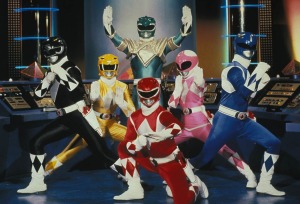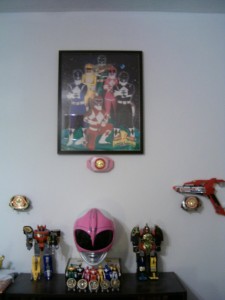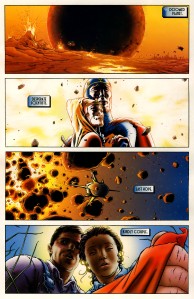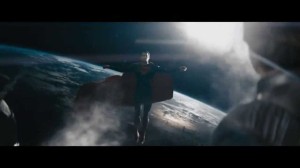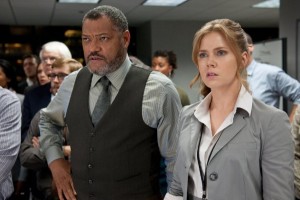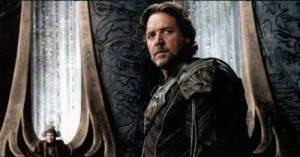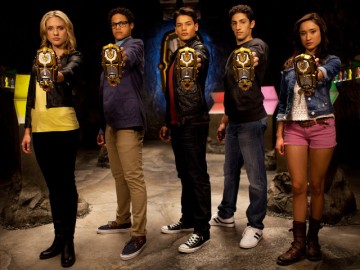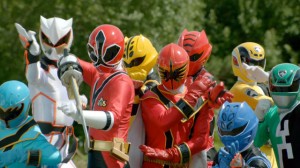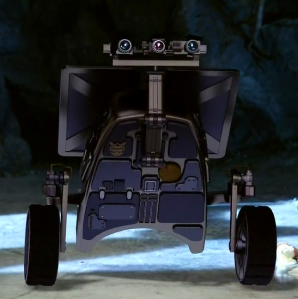It’s been nearly two years since my last post here. Sorry about that. Every time I had an idea and thought about getting back into the swing of things, something came up to distract me. I have lots of updates and lots of ideas for posts, and all of that will follow, but this particular post needs to come first.
In the wake of the Sad Puppies and Rabid Puppies campaigns, I’ve gone ahead and purchased a membership to Sasquan, the 2016 Worldcon, so I can vote in the Hugo Awards. I’ll be doing this with every Worldcon I can support from now on, because if I have the ability to raise my voice and be heard, I should probably do it. With a bit over a month left before the voting deadline, it’s time for me to decide who I’m going to vote for…and that’s a problem which has required a certain amount of research and soul-searching.
It would be easy for me to vote NO AWARD in every Puppy-influenced category, in protest. Some have called for this. It would be just as easy for me to eliminate all the Puppies’ nominees and vote only for those who were not on the slates; some have called for this also. But I don’t in good conscience feel that I can do this. Not everyone on the slates knew they were on them, or knew what they were getting into. There are works that were on the slates which I personally find worthy of consideration despite the ugly politics behind their nomination. (Skin Game comes to mind; while the Dresden Files books can be problematic, I am a fan, and I thoroughly enjoyed Skin Game and thought it was a real return to form for the series.) So I have settled on threading the needle, and I’ve found a distinct lack of resources geared toward voters interested in that strategy.
I’m a documentation nerd, which has been a useful trait in my professional endeavors. If a document doesn’t exist, I’ll dig in and create it. So here it is: my attempt at a guide to threading the needle. The Dogcatcher Post. An attempt to point out Hugo nominees who actively participated in Sad Puppies and Rabid Puppies, or (in the case of works from Castalia House, Theodore “Vox Day” Beale’s publishing house, especially) whose publishers did, as well as nominees who are thoroughly morally repugnant due to racism, xenophobia, homophobia, etc. Anyone highlighted in bold is someone I urge you to eliminate from your consideration, and I’ll explain why at the end of each category. Of course, if you want to use this list to vote only for the nominees I’m calling out for elimination, I can’t really stop you.
This list is constructed based on two principal rules:
The Card-Wright Rule
This is a long-standing personal rule of mine. Simply put, I don’t give money or support to living authors who hate me or mine. I will absolutely not consider people who have engaged in virulent bigotry, called for violence against me or people like me or people I care about, called for us to be openly oppressed and rounded up, and so on and so forth. Am I eliminating all problematic creators under this rule? No. I won’t even pretend to try. This is intended for the worst of the worst, those whose bigotry cannot be ignored or dismissed.
The Beale-Torgenson Rule
This rule is a new one, and in direct response to Sad Puppies and Rabid Puppies. I don’t think people who actively campaigned for these slates and used political ideology to get themselves or creators they publish or profit from nominated should be rewarded. Period. It’s one thing to offer up a list of works you were involved with that are eligible for Hugos – many authors have done this, many publishers have done this – but it’s quite another to incorporate your own work into a moral panic and deliberate crusade. Torgenson gets a little credit for treating the Sad Puppies slate as a set of suggestions…but not enough to escape this rule. Beale told his followers to vote in lockstep. No Hugo for him.
Obviously, there may be information I don’t have. If I come across any new information regarding the character (or lack thereof) of certain nominees, or their participation in Sad Puppies or Rabid Puppies, I’ll update this post accordingly.
Now let’s look at the nominees by category.
Best Novel
Ancillary Sword, Ann Leckie (Orbit US/Orbit UK)
The Dark Between the Stars, Kevin J. Anderson (Tor Books)
The Goblin Emperor, Katherine Addison (Sarah Monette) (Tor Books)
Skin Game, Jim Butcher (Orbit UK/Roc Books)
The Three Body Problem, Cixin Liu, Ken Liu translator (Tor Books)
Ancillary Sword, The Goblin Emperor, and The Three Body Problem were not on either the Sad Puppies slate or the Rabid Puppies slate. This leaves Jim Butcher and Kevin J. Anderson.
I cannot find any evidence that Kevin Anderson directly endorsed the Sad Puppy slate. He is acquainted with Brad Torgenson and has published some of his work, but I’m not going to base my decision solely on guilt by association. I don’t think I agree with Anderson on everything, but that’s not a prerequisite either. I can see no compelling reason to exclude him from consideration.
Jim Butcher does not seem to have been an active participant in S/RP either. He did call Irene Gallo unprofessional for her personal comments on the S/RP crowd (and, well, she was, a bit, but I don’t feel she deserved the goddamned Sword of Damocles crashing on her head), and he’s not without his problems. But I enjoy both the Dresden Files series and the Codex Alera, and I quite liked Skin Game, so I’m going to keep him on my list.
Best Novella
Big Boys Don’t Cry, Tom Kratman (Castalia House)
“Flow”, Arlan Andrews, Sr. (Analog, 11-2014)
One Bright Star to Guide Them, John C. Wright (Castalia House)
“Pale Realms of Shade”, John C. Wright (The Book of Feasts & Seasons, Castalia House)
“The Plural of Helen of Troy”, John C. Wright (City Beyond Time: Tales of the Fall of Metachronopolis, Castalia House)
All of the nominees in this category were on the Sad Puppies or Rabid Puppies slate. Most of them were published by Castalia House, which seems like a blatant grab if I’ve ever seen one, and John C. Wright is just absolutely awful. However, I can find no evidence that Dr. Arlan Andrews, Sr. was involved in campaigning for either slate, and he seems like a decent enough fellow. Through SIGMA, he’s associated with many people I admire. “Flow” should be read and considered.
Best Novelette
“Ashes to Ashes, Dust to Dust, Earth to Alluvium”, Gray Rinehart (Orson Scott Card’s InterGalactic Medicine Show, 05-2014)
“Championship B’tok”, Edward M. Lerner (Analog, 09-2014)
“The Day the World Turned Upside Down”, Thomas Olde Heuvelt, Lia Belt translator (Lightspeed, 04-2014)
“The Journeyman: In the Stone House”, Michael F. Flynn (Analog, 06-2014)
“The Triple Sun: A Golden Age Tale”, Rajnar Vajra (Analog, 07/08-2014)
Gray Rinehart did accept a place on the Sad Puppies slate and appears to be connected to members of the S/RP community; that said, he does not seem to have campaigned on the slate’s behalf, he did not nominate according to the slate himself, and he does not seem particularly repugnant. I do not believe his work should be rejected out of hand, and I will be considering “Ashes to Ashes, Dust to Dust, Earth to Alluvium” in this category.
Edward M. Lerner appears to be casually acquainted with Brad Torgenson and gave his assent to a recommendation. However, he does not seem to have known what he was getting into, he had nothing to do with Rabid Puppies, and, once again, he does not seem actively repugnant. “Championship B’tok” should, in my view, also be considered.
“The Day the World Turned Upside Down” was not on either slate.
I haven’t quite worked out where Michael F. Flynn stands, except that he seems to view the whole brouhaha as a conflict between a ‘settled’ SF community and outside underdogs who have just realized they can buy memberships and vote, and his sympathies are somewhat with the underdogs rather than those who want to condemn Puppy-nominated works sight unseen. Again, however, he hasn’t set off any alarm bells for me. From reading his blog, I doubt I’ll enjoy his work much, frankly, but I’ll read “The Journeyman: In the Stone House” nonetheless.
I’m not sure where Rajnar Vajra stands on any of this. I will note that he’s one of the diverse writers the S/RP crowd are using to counter claims that they were interested in nominating only white, straight, heterosexual men. Nevertheless, I will be considering “The Triple Sun: A Golden Age Tale”. I quite like golden age SF, actually.
Best Short Story
“On A Spiritual Plain”, Lou Antonelli (Sci Phi Journal #2, 11-2014)
“The Parliament of Beasts and Birds”, John C. Wright (The Book of Feasts & Seasons, Castalia House)
“A Single Samurai”, Steven Diamond (The Baen Big Book of Monsters, Baen Books)
“Totaled”, Kary English (Galaxy’s Edge Magazine, 07-2014)
“Turncoat”, Steve Rzasa (Riding the Red Horse, Castalia House)
All nominees in this category were on one or both slates. “Turncoat” and “The Parliament of Beasts and Birds” were both published by Castalia House. “The Parliament of Beasts and Birds” was written by John C. Wright, who is a proud and outspoken bigot and has attacked (among others) Marvel for introducing Kamala Khan, the new, Muslim Ms. Marvel, and the creators of The Legend of Korra for making a same-sex relationship canon within the series.
Lou Antonelli has defended the slate, describing himself as proud to be on it, and stating that he doesn’t see any problem with it. He has also characterized critics of S/RP as hateful, scolds, Nazis, and claimed that the S/RP crowd has only been vicious in its own defense. He has described the slates and their supporters as a peasant revolt against an SF elite. Prior to the official release of the nominees, he appears to have plugged only his own work (as is fair), but did mention that he was part of the Sad Puppies slate in at least one context. Frankly he’s raising a lot of red flags for me. That said, he has also criticized those elements of the Puppy crowd who want to destroy the Hugos, and his story “On a Spiritual Plain” has been praised by people outside the Puppy community. So I’m still deeply ambivalent on the man himself, and disagree with him on many of the arguments he’s made, but I personally am going to read his story and give it due consideration.
I cannot find any indication that Steve Diamond campaigned for either slate. He seems like an okay guy. I’ll be reading “A Single Samurai” with pleasure.
Kary English agreed to be part of the Sad Puppies slate. Prior to the official release of the Hugo nominees, she did connect Sad Puppies to her discussion of her own nominated work. I disagree strongly with her characterization of the genesis and intent of the slate and with her continued defense of it. However: she seems like the sort of person I would like very much (even if we might disagree on certain points). She does not appear to be a virulent bigot. Her work seems interesting. So I will be reading “Totaled” and giving it my full consideration.
Best Related Work
“The Hot Equations: Thermodynamics and Military SF”, Ken Burnside (Riding the Red Horse, Castalia House)
Letters from Gardner, Lou Antonelli (The Merry Blacksmith Press)
Transhuman and Subhuman: Essays on Science Fiction and Awful Truth, John C. Wright (Castalia House)
“Why Science is Never Settled”, Tedd Roberts (Baen.com)
Wisdom from My Internet, Michael Z. Williamson (Patriarchy Press)
All nominees on this category were on one or both slates. “The Hot Equations” and Transhuman and Subhuman were both published by Castalia House, and there’s our friend John C. Wright again. Hi there, John.
I’ve discussed Lou Antonelli above. He’s an S/RP defender but doesn’t seem as virulently awful as some others (though I disagree with much of what he’s said, and strongly disagree with his characterization of a woman who kicked him off her blog as a Nazi).
Tedd Roberts has defended the slate and attacked its critics (to be fair, he seems angriest at the most outspoken and strident people, the ones calling for categorical rejection for all nominees on the slate). Once again, though, he doesn’t seem awful. He seems angry, and justifiably in my view, that people would reject him for his association with controversy, that they would immediately judge and dismiss him out of hand without even reading his work. Fair enough. “Why Science is Never Settled” is on my reading list.
Michael Z. Williamson seems entirely irreverent and snarky toward just about everyone. I suspect I’d find prolonged contact with him infuriating. I don’t think I’ll like his book very much. But he’s not awful enough for me to strike him from consideration, and he doesn’t seem to have actively campaigned for Sad Puppies – as he tells it, Brad Torgenson asked if he wanted publicity, Williamson said yes, and then he promptly forgot about the whole thing. So I will give Wisdom from My Internet a chance.
Best Graphic Story
Ms. Marvel Volume 1: No Normal, written by G. Willow Wilson, illustrated by Adrian Alphona and Jake Wyatt, (Marvel Comics)
Rat Queens Volume 1: Sass and Sorcery, written by Kurtis J. Weibe, art by Roc Upchurch (Image Comics)
Saga Volume 3, written by Brian K. Vaughan, illustrated by Fiona Staples (Image Comics))
Sex Criminals Volume 1: One Weird Trick, written by Matt Fraction, art by Chip Zdarsky (Image Comics)
The Zombie Nation Book #2: Reduce Reuse Reanimate, Carter Reid (The Zombie Nation)
In this category, only The Zombie Nation Book #2 was on either slate. As far as I can tell, Carter Reid was not involved in campaigning and is not an awful person. I’m not going to endorse him over the other nominees, but don’t feel he should automatically be eliminated from consideration.
Best Dramatic Presentation, Long Form
Captain America: The Winter Soldier, screenplay by Christopher Markus & Stephen McFeely, concept and story by Ed Brubaker, directed by Anthony Russo and Joe Russo (Marvel Entertainment, Perception, Sony Pictures Imageworks)
Edge of Tomorrow, screenplay by Christopher McQuarrie, Jez Butterworth, and John-Henry Butterworth, directed by Doug Liman (Village Roadshow, RatPac-Dune Entertainment, 3 Arts Entertainment; Viz Productions)
Guardians of the Galaxy, written by James Gunn and Nicole Perlman, directed by James Gunn (Marvel Studios, Moving Picture Company)
Interstellar, screenplay by Jonathan Nolan and Christopher Nolan, directed by Christopher Nolan (Paramount Pictures, Warner Bros. Pictures, Legendary Pictures, Lynda Obst Productions, Syncopy)
The Lego Movie, written by Phil Lord & Christopher Miller, story by Dan Hageman, Kevin Hageman, Phil Lord & Christopher Miller, directed by Phil Lord & Christopher Miller (Warner Bros. Pictures, Village Roadshow Pictures, RatPac-Dune Entertainment, LEGO System A/S, Vertigo Entertainment, Lin Pictures, Warner Bros. Animation (as Warner Animation Group))
Captain America: The Winter Soldier and Edge of Tomorrow were not on either slate. I’m actually a bit surprised about Captain America, but maybe it’s more subversive than I realized.
The rest…look. Films involve a lot of people. Actors, directors, producers, writers…Brad Torgenson, at least, claims he contacted everyone on his slate and included those who gave him an affirmative response. I don’t know whether or not that’s true (there has been at least one nominee who refutes the story, but Torgenson claims that was an oversight), but I find it difficult to believe that he managed to reach out to everyone involved. And a lot of these movies were very, very good. The Lego Movie was better than it had any right to be. Interstellar wasn’t my favorite film, but it was very well made. Guardians of the Galaxy was tremendous fun. I haven’t seen Edge of Tomorrow yet, but I will. And I’ve heard surprisingly good things.
So I’m not striking any of them. They’re worthy nominees. All of them.
Best Dramatic Presentation, Short Form
Doctor Who: “Listen”, written by Steven Moffat, directed by Douglas Mackinnon (BBC Television)
The Flash: “Pilot”, teleplay by Andrew Kreisberg & Geoff Johns, story by Greg Berlanti, Andrew Kreisberg & Geoff Johns, directed by David Nutter (The CW) (Berlanti Productions, DC Entertainment, Warner Bros. Television)
Game of Thrones: “The Mountain and the Viper”, written by David Benioff & D. B. Weiss, directed by Alex Graves ((HBO Entertainment in association with Bighead, Littlehead; Television 360; Startling Television and Generator Productions)
Grimm: “Once We Were Gods”, written by Alan DiFiore, directed by Steven DePaul (NBC) (GK Productions, Hazy Mills Productions, Universal TV)
Orphan Black: “By Means Which Have Never Yet Been Tried”, written by Graham Manson, directed by John Fawcett (Temple Street Productions, Space/BBC America)
“Listen” and “By Means Which Have Never Yet Been Tried” were not on either slate. I’m actually a bit surprised about Doctor Who, but I guess it’s gotten a bit too socially degenerate for the Puppies. Lesbian lizard women and all.
Again, I find it difficult to believe that everyone involved in these productions gave their permission to appear on the slate. At most, maybe the director or a publicist was contacted. And again, a lot of these episodes were quite good. (I don’t watch Grimm. I suppose I’ll be watching one episode, anyway.) So I’m not striking any of them out without giving them a shot.
Best Editor, Short Form
Jennifer Brozek
Vox Day
Mike Resnick
Edmund R. Schubert (Withdrawn; has asked voters not to consider him)
Bryan Thomas Schmidt
All of the nominees were on one or both slates. Theodore “Vox Day” Beale is the man behind Rabid Puppies.
Jennifer Brozek did not campaign for either slate. She seems like a cool lady who does a lot of great work. I will happily consider her.
Mike Resnick, as far as I can tell, only plugged his own work, as you can expect authors and editors to do. I have my issues with him, but do not feel strongly enough to strike him from my consideration.
Edmund R. Schubert withdrew after the ballot closed. He has asked that people refrain from voting for him. I will honor that request.
Bryan Thomas Schmidt seems…all right. He has stated that he was unaware of his presence on the Rabid Puppies slate and would have demanded his removal if he had known. He was aware of his presence on the Sad Puppies slate, but does not seem to be wrapped up in the politics of it. Bit of an asshole and perhaps unprofessional, at least according to Jim C. Hines (who, to be fair, has butted heads with him), but if I refused to have a thing to do with common assholes I’d never get anything done. So, again, I’m going to consider him in this category.
Best Editor, Long Form
Vox Day
Sheila Gilbert
Jim Minz
Anne Sowards
Toni Weisskopf
All of the nominees were on one or both slates. Theodore “Vox Day” Beale is the man behind Rabid Puppies.
Sheila Gilbert has been highly praised by authors I like rather a lot. She has worked hard at DAW and doesn’t seem like a bad person in the slightest. I can’t find her own take on the S/RP brouhaha but I feel she is worthy of consideration.
Jim Minz has edited a wide range of authors and also done fine work.
Anne Sowards edits Jim Butcher and Kat Richardson, among other people. That makes her pretty okay in my book.
Toni Weisskopf has been a consistent Sad Puppy nominee but, again, a fine editor and Jim Baen’s heir over at Baen Books. I’m not going to dismiss her either.
Best Professional Artist
Julie Dillon
Kirk DouPonce
Nick Greenwood
Alan Pollack
Carter Reid
Julie Dillon was not on either slate.
I can’t find a thing about the other artists’ views on S/RP or, really, anything else. I’m going to give them the benefit of the doubt.
Best Semiprozine
Abyss & Apex, Wendy Delmater, editor and publisher
Andromeda Spaceways In-Flight Magazine, Andromeda Spaceways Publishing Association Incorporated, 2014, editors David Kernot and Sue Bursztynski
Beneath Ceaseless Skies, edited by Scott H. Andrews
Lightspeed Magazine, edited by John Joseph Adams, Stefan Rudnicki, Rich Horton, Wendy N. Wagner, and Christie Yant
Strange Horizons, Niall Harrison, editor-in-chief
Beneath Ceaseless Skies, Lightspeed Magazine, and Strange Horizons were not on either slate.
I can’t find a thing about the views of the Abyss & Apex staff in general or Wendy Delmater in particular on the S/RP kerfluffle, so once again, I’m giving them the benefit of the doubt.
The people behind Andromeda Spaceways In-Flight Magazine have stated that they were unaware of their presence on the slate until the last moment, and would have asked to be removed if they had known. Therefore, I am happily including them in my consideration this year.
Best Fanzine
Black Gate, edited by John O’Neill (Withdrawn; has asked voters not to consider the magazine)
Elitist Book Reviews, edited by Steven Diamond
Journey Planet, edited by James Bacon, Christopher J Garcia, Colin Harris, Alissa McKersie, and Helen J. Montgomery
The Revenge of Hump Day, edited by Tim Bolgeo
Tangent SF Online, edited by Dave Truesdale
John O’Neill withdrew Black Gate after the Hugo ballot closed. He has asked voters not to consider him. I will honor his request.
I’ve already addressed Steve Diamond above. In short, I don’t think I’ll end up caring for him, but I’m going to give Elitist Book Reviews my consideration.
Journey Planet was not on either slate.
Tim Bolgeo has been at the center of at least one convention controversy when he was invited and then disinvited as Fan Guest of Honor at Archon. The Revenge of Hump Day is reportedly full of racist, sexist and generally offensive humor. I’ll take a look at it but I don’t expect I’ll like it one bit. I haven’t been able to find anything from the man himself on this or other matters.
Dave Truesdale seems quite clueless, frankly. He circulated a petition against ‘censorship based on political correctness’ in the SFWA Bulletin last year, following its suspension in the wake of a controversy over some problematic language and a problematic cover. He claims that he’s never seen an incident of sexism or racism in the SF community. But he doesn’t seem to be terribly malicious, and he’s well respected. Tangent seems decent. Truesdale described himself as flattered that Tangent was on the slate, but doesn’t seem to have campaigned for the slate at large. So I’m giving it a shot.
Best Fancast
Adventures in SciFi Publishing, Brent Bower (Executive Producer), Kristi Charish, Timothy C. Ward & Moses Siregar III (Co-Hosts, Interviewers and Producers)
Dungeon Crawlers Radio, Daniel Swenson (Producer/Host), Travis Alexander & Scott Tomlin (Hosts), Dale Newton (Host/Tech), Damien Swenson (Audio/Video Tech)
Galactic Suburbia Podcast, Alisa Krasnostein, Alexandra Pierce, Tansy Rayner Roberts (Presenters) and Andrew Finch (Producer)
The Sci Phi Show, Jason Rennie
Tea and Jeopardy, Emma Newman and Peter Newman
Galactic Suburbia Podcast and Tea and Jeopardy were not on either slate.
Adventures in SciFi Publishing was knowingly included in the slate and had Brad Torgenson and Larry Correia on the podcast to discuss Sad Puppies prior to the release of the Hugo nominees. That said, they seem to have done their best to prevent all sides of this and many other issues in the SF community. I’m going to give this podcast all due consideration.
Dungeon Crawlers Radio was included on both the Sad Puppies and Rabid Puppies slate, but I haven’t found anything regarding their views on the matter. Plus their podcast seems pretty cool. I’ll be listening to a sample.
Can’t find a thing on Jason Rennie’s views regarding The Sci Phi Show‘s inclusion, either. I will note that he put the podcast on hiatus earlier this year. He has promised to return, but hasn’t yet. Frankly, this makes me less likely to vote for it. but I’ll try an episode or two.
Best Fan Writer
Dave Freer
Amanda S. Green
Jeffro Johnson
Laura J. Mixon
Cedar Sanderson
Dave Freer called for people to put pressure on Tor and its parent company to discipline or otherwise ‘address’ Irene Gallo for her (admittedly inflammatory) personal comments against the S/RP slate. He also called for a boycott of any Tor author who was not either a Sad Puppy or speaking out against Tor’s inaction if they did not respond. This is the tip of the sword. I’ve been reading through his posts on the subject and find his strident defense of S/RP and his refusal to see the slates’ problems absolutely repugnant. So I’m refusing to consider him. I do not believe he has conducted himself well and I have little interest in handing him any accolades.
Incidentally, Freer is also part of the Mad Genius Club blog collective, which also includes Brad Torgenson, and the next nominee on the list, Amanda S. Green. Who wrote her own open letter to Tor, criticized them for keeping John Scalzi (a ‘straw man’) in their stable apparently based not on the artistic merit of his work but on his personal views, said much the same about N.K. Jemisin, and also called for a boycott. I also find her conduct repugnant and her association with Sad Puppy Central suspect. I will not be considering her for an award.
Jeffro Johnson writes for Castalia House and has been pretty goddamned outspoken against critics of the S/RP slates. He does not appear to have called for boycotts, however, which is a point in his favor. His obsession with File770 and his critics there puts me off, but I’m going to read his material in the voting packet and try to judge it on its merits. I will, however, note that he is just barely on the ‘will consider’ side of the line for me, as Freer and Green are just barely on the other side.
Laura J. Mixon was not on either slate.
Cedar Sanderson is associated with the Mad Genius Club, endorsed the Sad Puppies slate (even as she qualified her statement by urging voters to vote for the BEST works and use the slate as a guideline), and chose to highlight some posts by other writers seemingly calculated to piss off the left wing elements of fandom while endorsing the slate at large. I don’t really care for any of this.
Best Fan Artist
Ninni Aalto
Brad W. Foster
Elizabeth Leggett
Spring Schoenhuth
Steve Stiles
This category was not included in either slate.
The John W. Campbell Award for Best New Writer (not a Hugo but administered alongside the Hugos)
Wesley Chu
Jason Cordova
Kary English
Rolf Nelson
Eric S. Raymond
Wesley Chu was not on either slate.
Jason Cordova is affiliated with the Mad Genius Club, helped campaign for the Sad Puppy slate, and has been laying on some serious denial about what the slate actually entails. Some of his anger is justifiable. But I just can’t get past his involvement with core elements of the Sad Puppy effort. So I’m not going to consider him.
I already addressed Kary English above, but in short, I do not find her ties to S/RP deep enough or her personal views repugnant enough to strike her from consideration.
Rolf Nelson is a Castalia House author who participated in the call to boycott Tor. Frankly, I consider his nomination to be a direct result of Vox Day’s self-interest and tendency toward self-promotion. I am not going to consider his work.
I have not been able to find anything on Eric S. Raymond’s views regarding Sad/Rabid Puppies. While I do not find his libertarian politics repugnant (though I would certainly disagree), he, too, is a Castalia House author. I’m just not giving Vox Day the satisfaction.
*****
So that’s this year. What comes next?
Well, like I said: I’m going to buy a membership to every Worldcon moving forward, as long as I’m able, as early as I can, so I can participate in the nomination process. I’m going to recommend works and creators that I consider worthy of an award, for whatever good that will do. I’m going to share the recommendations of others. I’m not interested in slate voting. I’m not interested in agenda voting. I’m just interested in good SF. And I’m interested in not rewarding people who grab at political zeitgeists for their own gain, or who want me or mine to suffer.
Look, I agree with some elements of the Sad Puppy crowd on one thing: SF needs to be about optimism again. It needs to be about a brighter future, a better future. Our world sucks. We are murdering it. It may be too late to save it. But science fiction has inspired so much already. Isaac Asimov put it best:
Individual science fiction stories may seem as trivial as ever to the blinder critics and philosophers of today – but the core of science fiction, its essence, has become crucial to our salvation, if we are to be saved at all.
I love dystopian fiction as much as anyone. But I’m tired of washed-out grays and browns. I’m tired of oppression and depression. I’m tired of antiheroes and moral ambiguity and shellshock. I want to dream. I want to blast off. I want to soar into an infinite universe full of possibility. And I want the next generation, and every generation after, to dream just as freely.
It’s just that I reject any future that clings to racist, patriarchal standards, and I reject anyone who wants such a future. The world only spins forward. And it should only spin forward.


